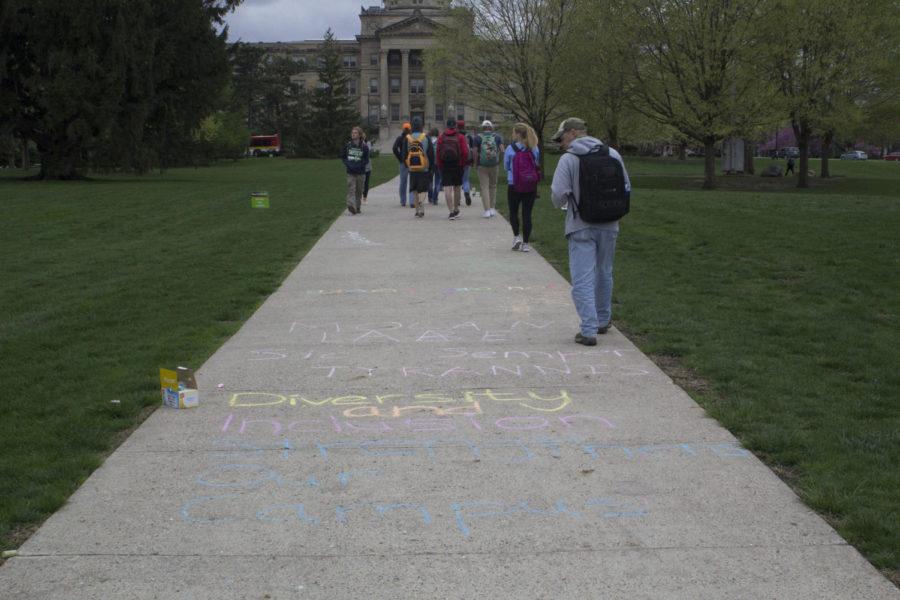Letter: Administrators shouldn’t decide what is good or bad
Kennedy DeRaedt/Iowa State Daily
Recent chalkings seen on Iowa State sidewalks led to a student protest surrounding racism on campus. Following the protest, a new chalking policy was implemented to limit who can chalk and what they can put in their chalkings.
November 13, 2019
Chalking messages on sidewalks can have value. Anti-racist messages, for example, can prompt people to explore the harms of racism and maybe take action. That’s why activists use chalking. Racist messages, however, never have value. They harm people. And they should stop.
Given this, you might think the university should permit anti-racist chalking but prohibit racist chalking. More generally, you might think the university should prohibit chalking that does more harm than good, and permit anything else.
But it shouldn’t.
Imagine some possible cases.
-Someone chalks TORTURERS on the ROTC building after hearing about Abu Ghraib.
-Someone chalks KILLERS on the ISU police station after hearing about Cleveland police shooting Tamir Rice.
-Someone chalks MEAT IS MURDER in front of Curtiss after seeing a movie about factory farms.
-Someone chalks DEATH TO WHITE SUPREMACY all over campus to counter racist chalking.
Some veterans, police officers, animal husbandry students and Trump supporters might feel attacked in one case or another. Yet, some of these messages could have value, spreading important information, inspiring needed action and so on.
Would the harm exceed the good in any of these cases? I don’t trust university administrators to decide. I don’t want them to have that power. Nor do I want you to have that power.
Invoking a different principle won’t help. You might only want to ban chalking that attacks people’s identity. But I don’t trust administrators to decide which of soldier, police officer, animal farmer, black or Jewish is part of someone’s identity and which isn’t.
The problem is the same no matter the principle: we shouldn’t give administrators the power to decide what can be seen and what can’t.
The First Amendment prevents the university from treating racist and anti-racist chalking differently. We should be glad it does.

















